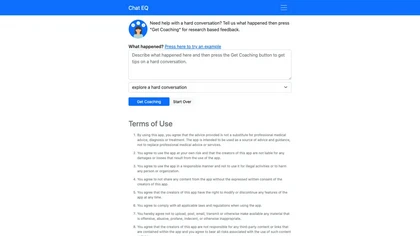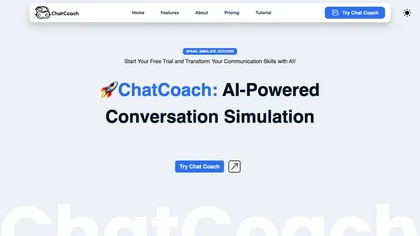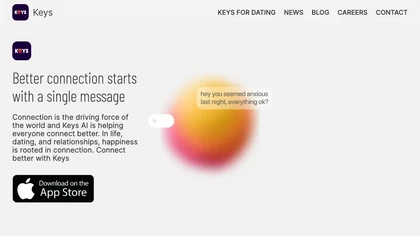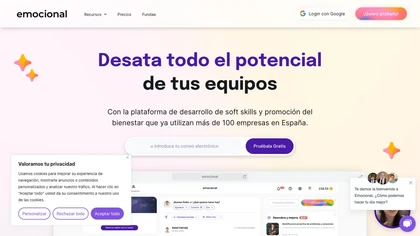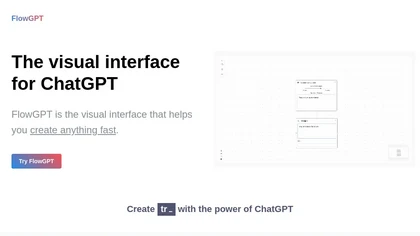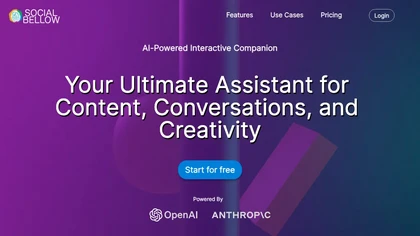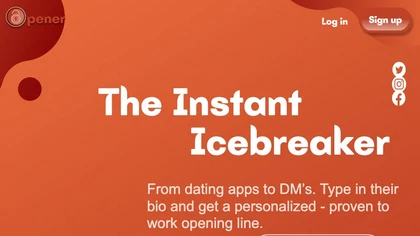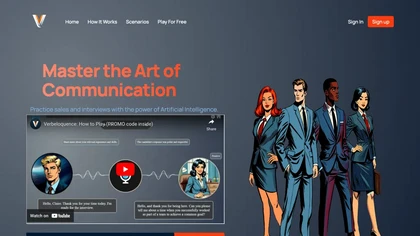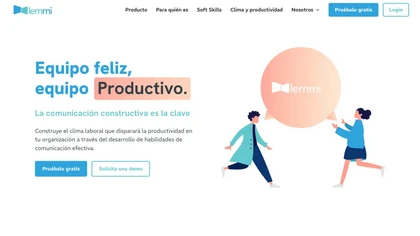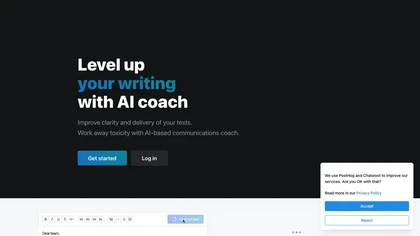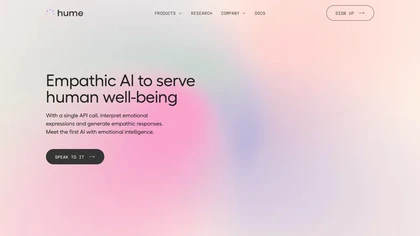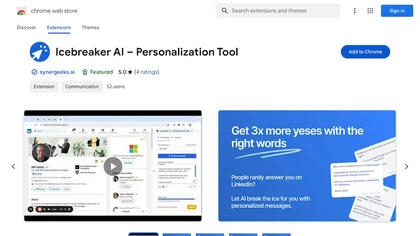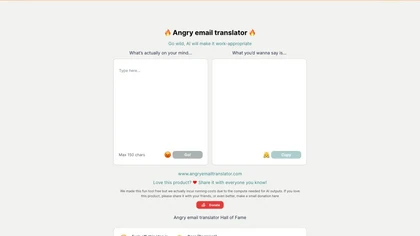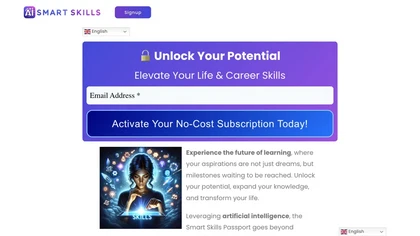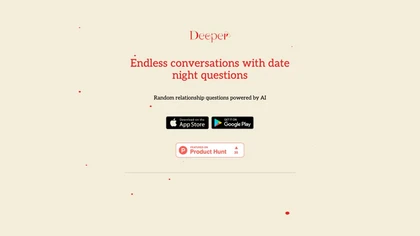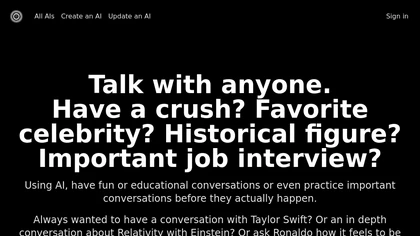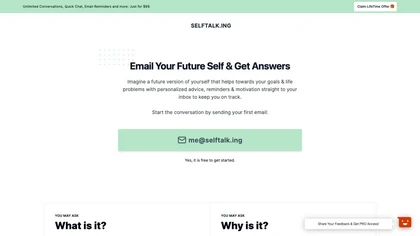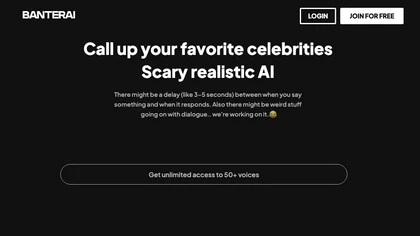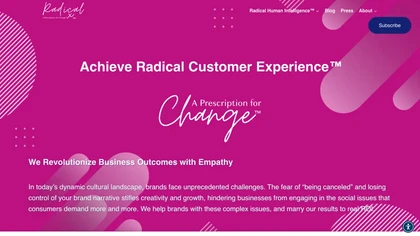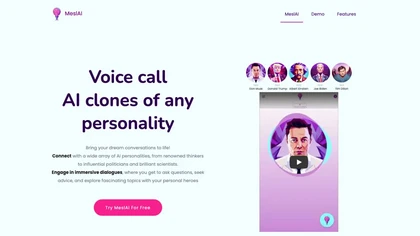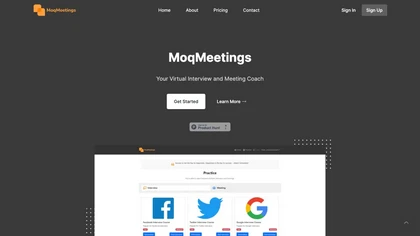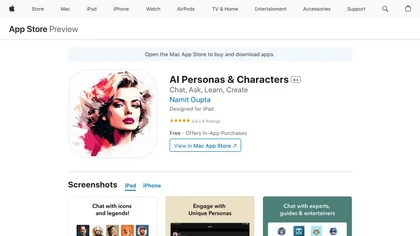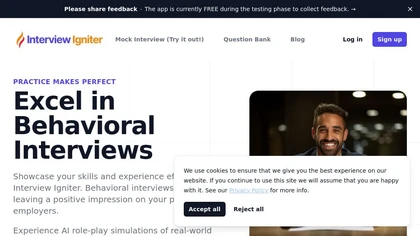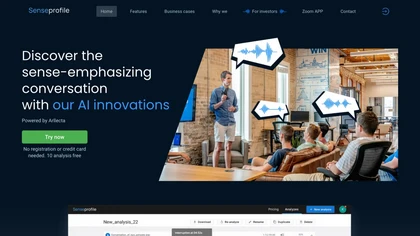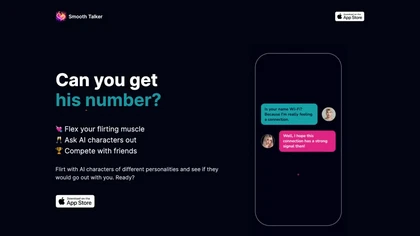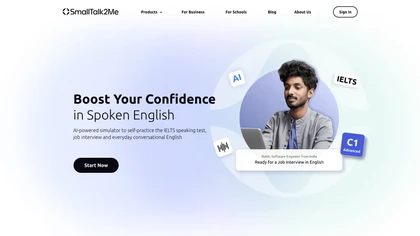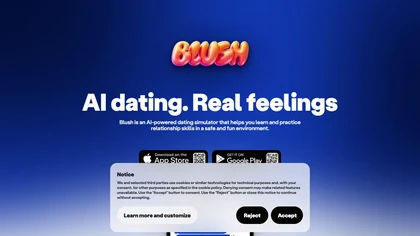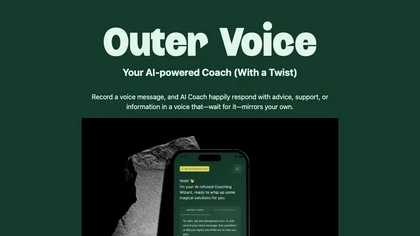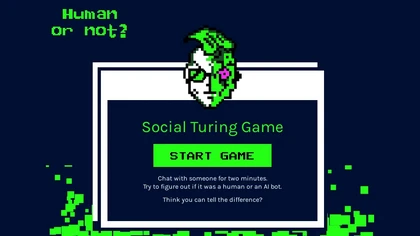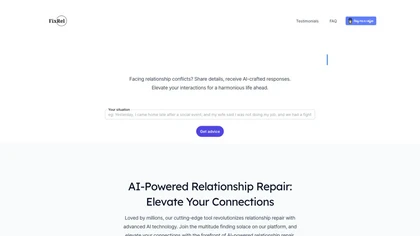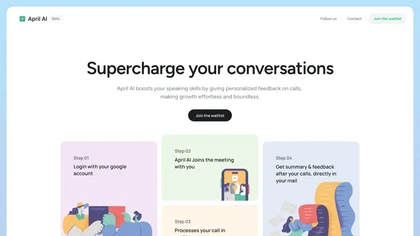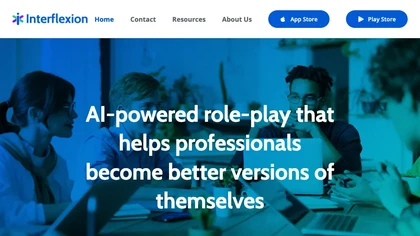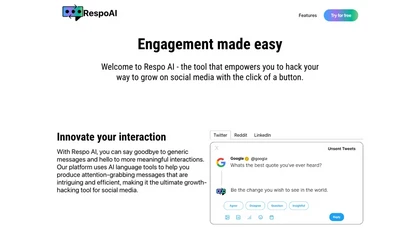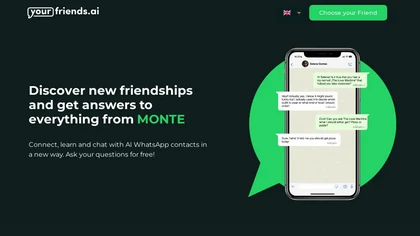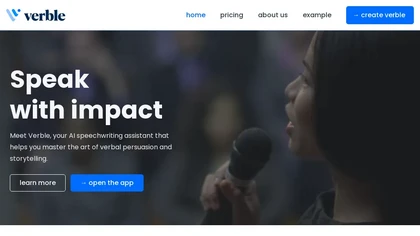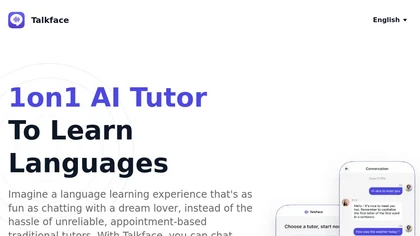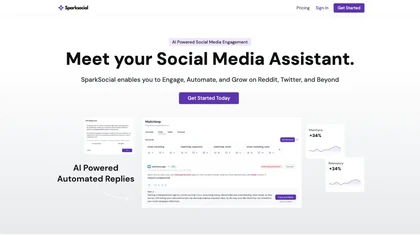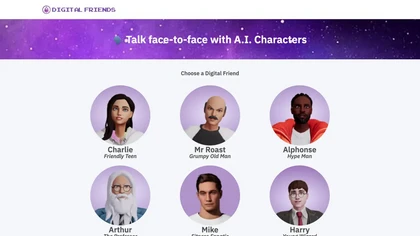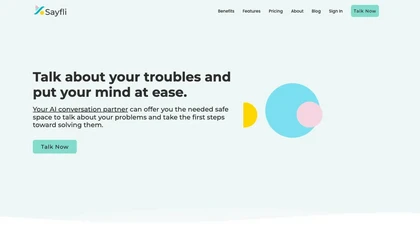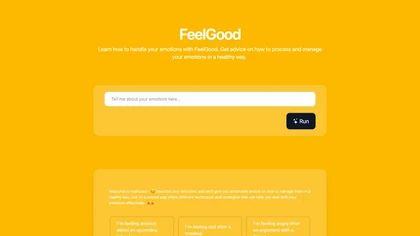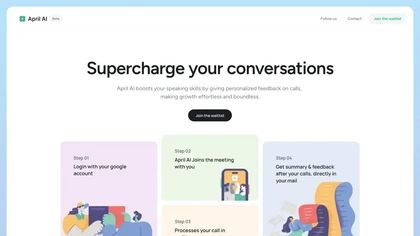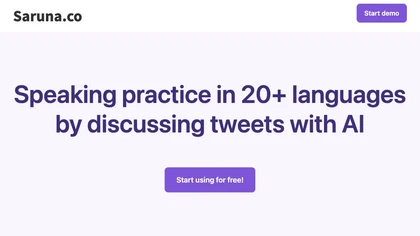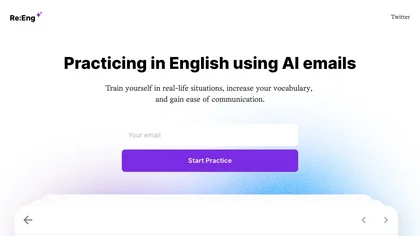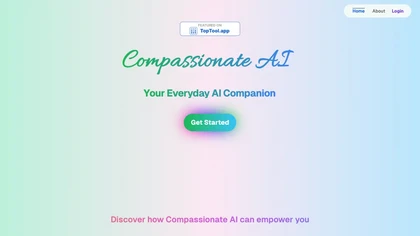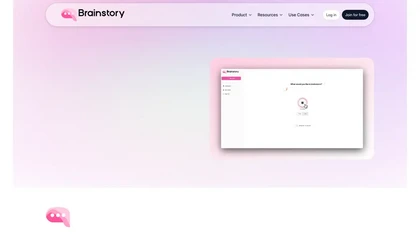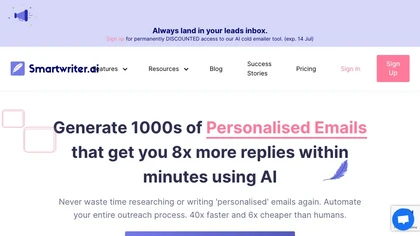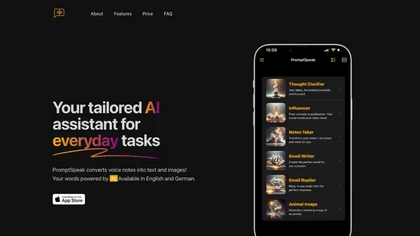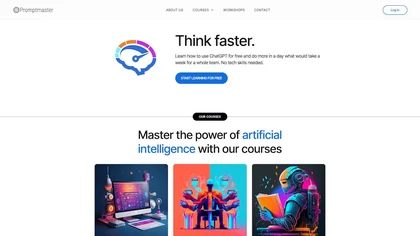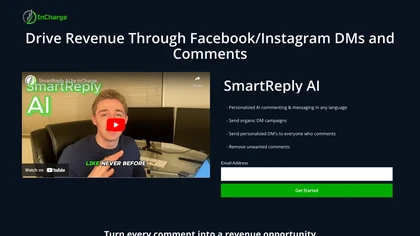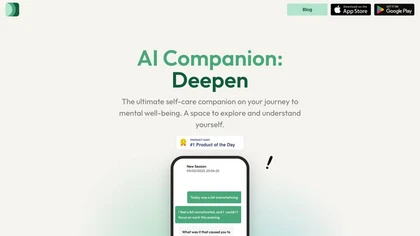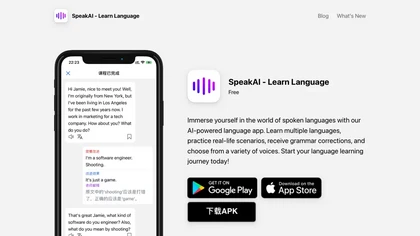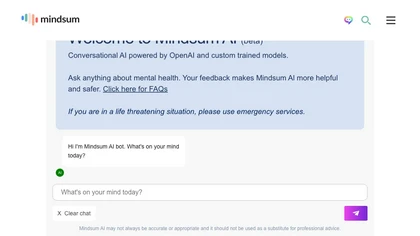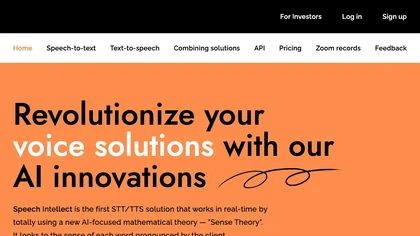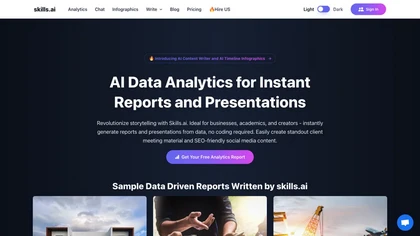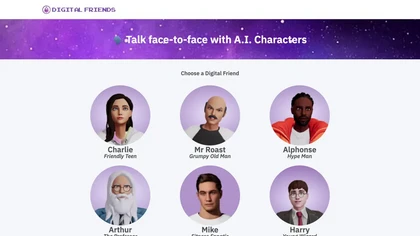AI use cases for Social skills
Generative AI can be applied in various applications for social skills. Here are some examples to explore below for inspiration with AI tools to get you started with using AI in social skills.
🛠️ 70 AI tools for Social skills
Explore a dynamic list of some of the most popular tools to get you started with various AI use cases and applications for Social skills to streamline your workflows and productivity today.
Chat EQ features
- Research-based feedback
- Conflict resolution skills enhancement
- Insights on user's feelings
- Suggested conversation approaches
- Avoid common pitfalls in conflicts
Virtual Sapiens features
- AI communication coach
- Presence portal for skill assessment and improvement
- Simulated conversations for feedback
- In-call coaching
- Personalized feedback on nonverbal, vocal, and verbal cues
ChatCoach features
- Real-life conversation simulations
- Advanced emotional analytics
- Natural language processing tools
- Lifelike simulations of various scenarios
- Personalized training and access to multiple virtual conversational partners
Thekeys features
- Amplify communication
- Conversation starting
- Clear communication
- Matching intent and voice
- Better connections
Emocional features
- Personality evaluation
- Soft skills evaluation
- Well-being assessment
- Personalized improvement plans
- Access to digital tools like Eva AI
HeartDialog features
- 24/7 availability
- Personalized conversations
- Privacy protection
- Context tracking
- Integration of journaling, meditation, and CBT
FlowGPT features
- Generate chat prompts
- Provide ai assistance in real-time
🔥
Create your account, save tools & get personal recommendations
Receive a weekly digest of our handpicked top tools.
Unsubscribe anytime
Social Bellow features
Opener features
- Generate personalized openers
- Use bio for opening line
- Initiate conversation on dating apps or with strangers
- Set up profile and receive personalized openers
- Easy to use
Verbeloquence.ai features
- Audio-based game
- Realistic scenarios for sales interviews, negotiations, and debates
- Utilizes AI technology
- Judges responses based on logic, persuasiveness, and emotional intelligence
- Immersive role-play features with customizable scenarios
Lernmi features
- Real-life scenario-based role-play exercises
- Personalized feedback
- Simulated scenarios for practice
- Objective insights on tone of voice and verbal language
- Guidance through explanatory videos
Soft Skills Cloud features
- Writing coach functionality
- Automatic feedback
- Correction suggestions
- Toxicity detection
- Team leadership guidance
Hume AI features
- Interpret emotional expressions
- Generate empathic responses
- Measure nuanced vocal modulations
- Predict outcomes based on language alone
- Interpret vocal and facial expressions with precision
Icebreaker AI features
- AI-generated icebreakers
- scoring for message effectiveness
- easy customization
- user-friendly interface
Angry Email Translator features
- Email message transformation
- Utilizes advanced AI technology
- Rephrasing and reframing content
- Generates courteous and constructive versions
- Suitable for professional environments
SmartLifeSkills
4.8SmartLifeSkills features
- Interactive platform with AI chatbots
- Multilingual lessons with authentic accents
- Adjustable playback speed
- Advanced text-to-speech technology
- Custom quiz generator
Deeper app features
- Conversation starters generation
- Relationship questions generation
- Powered by OpenAI's GPT-4 model
- No account needed for basic use
- Option to purchase question credits
Practicetalking features
- Create ai agents
- Update ai agents
- Interactive conversations
- Practice important conversations
- Share ai creations
Selftalk.ing
4.9Selftalk.ing features
- Unlimited conversations with future self
- Quick chat interface
- Email reminders
- Personalized advice and motivation
- Access to past conversations
Banterai features
- Expert advisors
- Unlimited calls and chats
- Multiple voices
Radical Human Intelligence™ features
- 3 R methodology support
- Deep stakeholder understanding
- Human level connections
- Informed decision making
- Fostering trust and collaboration
MeslAI features
- Voice call functionality
- Personality cloning
- Wide array of AI personalities
- Immersive dialogues
- Realistic voice replication
MoqMeetings features
- Simulated scenarios for realistic practice sessions
- Detailed feedback for interview and sales skills improvement
- In-depth performance analysis on communication style and body language
- Customizable scenarios based on industry needs and job roles
- Advanced tool designed to help users excel in interviews and meetings
IX Coach features
- Goal setting
- Obstacle overcoming
- Action planning
- Social interaction understanding
- Communication improvement
AI Persona Chat features
- Mobile App
- Chat with AI personas
- Multi-lingual
- Multi-themes
SocialMate features
Interviewigniter features
- Question bank
- Personalized feedback
- Ai role-play simulations
- Tailored behavioral interview questions
- Rehearse and refine responses
SenseProfile features
- Speakers diarization
- Topic sense detection
- Tonality analysis
- Statistics tracking
- Language monitoring (interruptions, obscene language)
- Keyword and phrase identification
- Business-specific applications (sales transcription, object identification, scenario-based behavior control)
- Retail implementations (mood detection, client communication planning, employee monitoring)
- Service quality analytics
- Support for self-learning predictive network 'Arllecta'
Smooth Talker features
- Engage in conversations with AI characters
- Practice flirting techniques
- Compete with friends
- Charm AI characters
- Boost confidence
SmallTalk2Me features
- IELTS speaking test simulator
- IELTS writing test simulator
- Mock job interview practice
- Vocabulary booster
- Voice recording with instant feedback
Blush features
- AI-powered dating simulator
- Safe and fun environment for learning and practicing relationship skills
- Personalized guidance
- Experiment with different approaches to flirting and communication
- Engage with characters for emotional support and companionship
Outer Voice AI features
- Record voice messages
- Receive responses that mimic user's voice
- Offer advice, support or information
Fix Rel features
- AI-powered relationship assistant
- AI-crafted responses
- Accessible on various devices
- User-friendly interface
- Secure data measures
April AI features
- Real-time call processing
- Personalized feedback
- Detailed summaries
- Tailored feedback based on meetings
- Seamless integration into existing routine
Interflexion features
- Career coaching
- Personalized development plan
- Skill assessments
- Goal setting
- Progress tracking
The Prompt Square features
- ChatGPT prompts
- Algorithmic problem-solving assistance
- Tailored interview preparation
- Vibrant community for skill enhancement
- Customizable prompts
Respo AI features
- Automated generation of engaging messages for social media platforms
- Support for Twitter, Reddit, and LinkedIn
- Chrome extension for crafting responses seamlessly
- Harnessing AI language tools for crafting impactful content
- Enhancing brand reputation and authority in the niche
Yourfriends.ai
2.3Yourfriends.ai features
- Friend discovery
- Comprehensive question answering
- Ai-powered chatbots
- Integration with messaging platforms
Verble features
- Chat-based interface
- Smart editing mode
- Tailored message for different types of speeches
- Innovative speaker techniques
Talkface features
- 1-on-1 tutoring
- Personalized curriculum
- Language learning
- Fun and engaging
- Affordable solutions
- Eliminates need for unreliable tutors
- Available on android and ios devices
Sparksocial features
Insightful features
- Provide personalized on-demand coaching
- Focus on specific needs
- Available anytime, anywhere
- Blog with latest insights on living a fulfilling life
- Accountability coaching to help young professionals reach full potential
Txt Your Ex features
- Replace negative words with positive ones
- Encourages healthier communication
- Provides a secure space for sharing
- Designed for personal growth
- Supports mindful communication practices
SocialPostGPT features
Digital Friends AI features
- Face-to-face conversations with AI characters
- Characters serving as companions, entertainers, counsellors, and mentors
- Long-term relationships via text, audio, video, AR, VR, and mixed reality
- Range of characters for interaction
- Assistance, instruction, and chat buddy functionalities
Mojo features
- One-click reply generation
- High-quality replies
- Seamless integration across social dating platforms
- Effortless icebreaker suggestions
- User-friendly interface
Sayfli features
- AI conversation partner
- Safe and non-judgmental space for expression
- Supports 30 widely spoken languages
- End-to-end encryption for confidentiality and security
- Available 24/7 for engagement
FlirtAI
1.6FlirtAI features
- Personalized suggestions
- Analyzes profiles
- Chat interactions
- Offers insightful responses
- Continuously learns
FeelGood
4.2FeelGood features
- AI-powered
- Emotion analysis
- Actionable advice
- Personalized techniques
- Support emotional well-being
AprilAI features
- Real-time call processing
- Contextual feedback based on real-life meetings
- Understanding nuances of conversation
- Personalized speaking style analysis
- Seamless integration into existing routine
SpeakFit features
- Voice recognition
- Grammatical improvement
- Personalized word and phrase lists
- Daily practice
- Language support
Re:Eng features
- Email practice
- Vocabulary building
- Real-life situation practice
- Progress tracking
- Language barrier breaking
Compassionate AI features
- Personalized support
- Empathetic conversations
- Evolution of interactions
- Context-aware responses
- Data privacy prioritization
BrainStory features
- Question-based cognitive enhancement
- Out-loud thinking feature for organizing thoughts
- Feedback-seeking functionality for collaboration
- Mobile-friendly interface for easy access across devices
- Free trial option for firsthand experience before subscription
Smartwriter features
- Cold email creation
- Linkedin message generation
- Personalization
- Conversion optimization
Prompt Speak features
- Supports English and German languages
- Offers AI-enhanced chatrooms for drafting and refining written communication
- Provides real-time suggestions for edits and improvements
- Can create animal images and assist with academic note-taking
- Prioritizes data security through encryption and robust security measures
ChatSuggest features
- Improve sales calls
- Assist in startup pitches
- Conversational approach
- Powered by ai hobby project thi
- Currently in beta mode
Promptmaster features
- Write precise prompts for chatgpt
- Learn advanced topics like search, plugins, and knowledge base integration for chatgpt
- Improve ai skills
- Take career to the next level
IdeaScore features
- Problem solution
- Customization options
- User-friendly interface
- Eco-friendliness
- Regulatory compliance
SmartReply AI features
- Automated reply to comments and messages
- Personalized AI commenting and messaging language
- Unwanted comment removal
- Personalized recommendations for products and services
- Bulk organic DM campaigns
Deepen features
- Chat sessions with AI companion
- Guided conversations
- Insights dashboard
- Supports exploration and understanding of emotions
- Aids in decision-making
Ordinary Prompts features
- Prompt generation
- Automatic prompt ideas
- Unique prompts
- Regular updates
SpeakAI.cc features
- AI-powered language learning app
- Personalized learning paths and interactive exercises
- Support for a wide range of languages
- Real-time feedback and personalized grammar suggestions
- Real-time dialogue feature for practicing with virtual partners and native speakers
LiarLiar.ai features
- Analyze micro movements, heart rate fluctuations, and body language cues for lie detection
- Decode facial expressions and micro-emotions
- Spot voice inconsistencies for deception detection
- Monitor language choices and attentiveness levels
- Integrate with popular video call software and support real-time transcription
Mindsum features
- Answer mental health-related queries
- Offer custom train models
Speechllect features
- Speech-to-text
- Text-to-speech
- Emotional understanding
- Real-time reproduction
- Automation of business processes
Skills.ai features
- Instant report and presentation generation without coding
- Creation of standout client meeting materials and social media content
- Complex analysis and stunning visualizations
- Advanced AI capabilities for uncovering crucial insights
- AI Data Chat feature for 24/7 interaction with AI
DigitalFriends features
- Interactive AI characters
- Text, audio, and video engagement
- AR, VR, and mixed reality support
- Diverse character selection
- Personalized interactions
